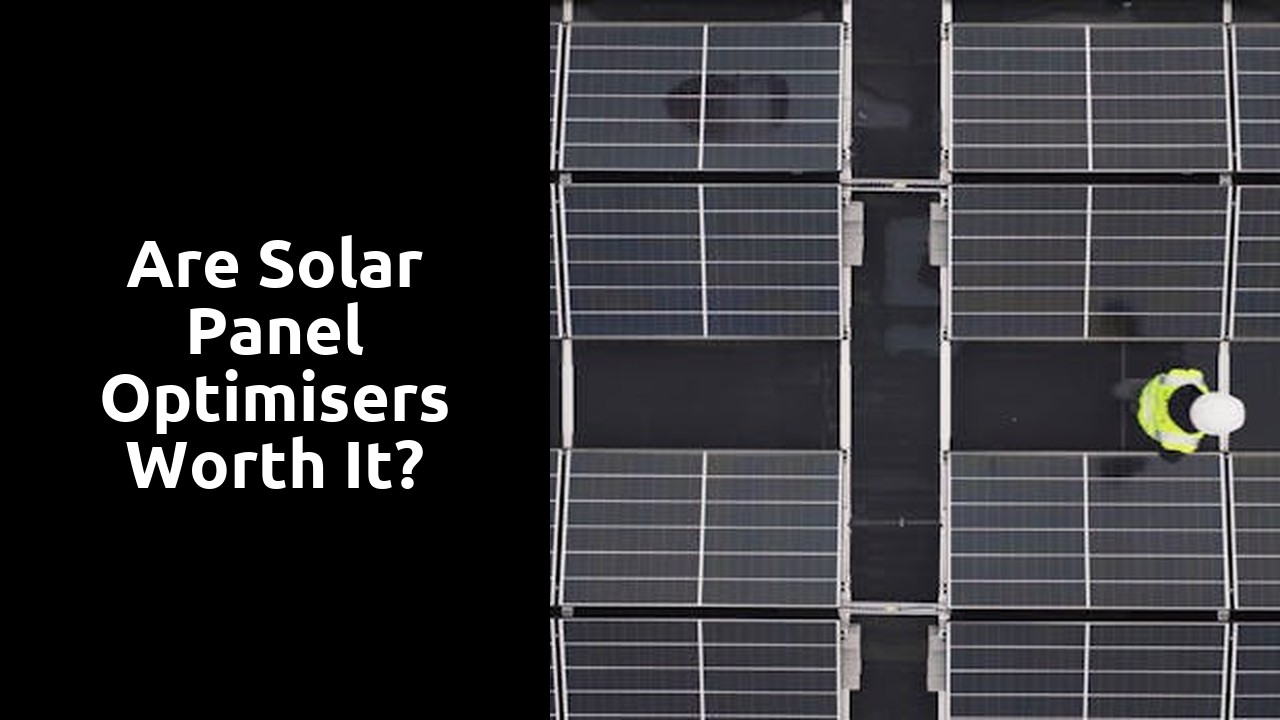Are solar panel optimisers worth it?

Comparison Between Solar Panel Optimisers and Traditional Solar Systems
When comparing solar panel optimisers to traditional solar systems, the key difference lies in the approach to solar panel system optimization. Traditional solar systems typically operate with all panels connected in a series circuit. This means that if one panel is shaded or underperforming, it can impact the overall system's efficiency, affecting the entire array's output. In contrast, solar panel optimisers work at the individual panel level, allowing each panel to operate independently, thereby maximizing energy production by mitigating the impact of shading or panel malfunctions.
Furthermore, solar panel optimisers can enhance the overall performance of a solar system by enabling more precise tracking of individual panel output. This granular approach ensures that each panel operates at its optimal capacity, resulting in increased energy generation. With traditional systems, the performance of the entire array is limited by the lowest-performing panel, whereas solar panel optimisers allow each panel to reach its full potential, contributing to a more efficient and reliable solar energy system.
Performance in Shaded Areas
Solar panels are a valuable investment for households and businesses looking to harness renewable energy. However, shaded areas can significantly impact the performance of solar panel systems. When shadows fall on solar panels, the energy output decreases, reducing the overall efficiency of the system. In shaded areas, traditional solar systems can experience declines in production as shadows obstruct sunlight from reaching the panels. To address this issue, Solar Panel System Optimization through the use of optimisers has emerged as a solution to enhance the system's performance in shaded conditions.
Solar panel optimisers are designed to mitigate the impact of shading on solar panels by improving the overall efficiency of the system. By installing optimisers, each panel operates independently, ensuring that shaded areas do not affect the energy production of the entire system. This technology allows panels to perform optimally even when parts of the system are shaded, making it a practical solution for locations where shading is unavoidable. Solar Panel System Optimization using optimisers enables households and businesses to maximise the benefits of solar energy, even in areas with shading challenges.
Maintenance Requirements for Solar Panel Optimisers
Maintenance requirements for solar panel optimisers are generally minimal compared to traditional solar systems. Regular cleaning of the panels to ensure optimal sunlight absorption is essential for the efficient performance of the system. It is advised to conduct routine inspections to check for any signs of wear and tear on the optimisers and the overall system.
In addition to physical upkeep, software monitoring plays a crucial role in solar panel system optimization. Many modern optimisers come equipped with monitoring systems that allow users to track the performance of each panel and identify any potential issues promptly. Regularly monitoring the system can help detect and address any problems early on, ensuring the system operates at peak efficiency.
Monitoring and Troubleshooting Issues
Solar Panel System Optimization can greatly benefit from regular monitoring and timely troubleshooting of any potential issues. By keeping a close eye on the performance of your solar panel optimisers, you can ensure that your system is functioning at its best capacity. One common issue that may arise is a drop in efficiency due to dirt or debris accumulating on the panels. Regularly cleaning the panels can help maintain optimal performance and prevent any unnecessary decrease in energy generation. Additionally, monitoring software can help identify any malfunctioning optimisers or areas that are not receiving sufficient sunlight, allowing for quick intervention to rectify the problem and maximise energy production.
Another crucial aspect of monitoring and troubleshooting Solar Panel System Optimization is identifying any faults in the system that may be causing underperformance. By monitoring the output of each optimiser and comparing it to the expected values, you can quickly pinpoint any outliers that may indicate a malfunction. In case of a fault, it is imperative to have a clear troubleshooting process in place to diagnose and resolve the issue efficiently. This proactive approach not only ensures that your solar panel optimisers are operating at their peak efficiency but also helps in prolonging the lifespan of the system as a whole.
Case Studies
Case studies have shown that implementing solar panel system optimisation technology can significantly improve the overall performance and efficiency of a solar energy system. One homeowner in Melbourne reported a remarkable increase in electricity generation after installing solar panel optimisers on their rooftop solar array. Their system previously struggled to produce adequate power due to shading from nearby trees, but with the optimisers, they were able to maximise energy production even in partially shaded conditions.
In another case from Sydney, a family saw a noticeable decrease in their electricity bills after investing in a solar panel optimisation system. The technology allowed their solar panels to operate at peak efficiency, resulting in greater energy generation and reduced reliance on the grid. This real-life example highlights the tangible benefits of solar panel system optimisation in enhancing the performance and cost-effectiveness of residential solar energy systems.
Impact on Electricity Bills
Solar Panel System Optimization can have a significant impact on electricity bills. By maximizing the efficiency of solar panels through optimisers, households can generate more electricity from the same amount of sunlight, leading to reduced reliance on the grid power. This translates into lower electricity bills over time, as the energy generated by the solar panels can offset a greater portion of the household's energy consumption.
Furthermore, Solar Panel System Optimization can also allow for better management of the energy generated by the solar panels. By optimizing the system's performance, households can ensure that they are utilizing the maximum amount of energy produced, thus further reducing their electricity bills. This increased efficiency in energy generation and consumption can result in noticeable savings on electricity bills, making solar panel optimisers a worthwhile investment for many homeowners looking to decrease their energy costs.